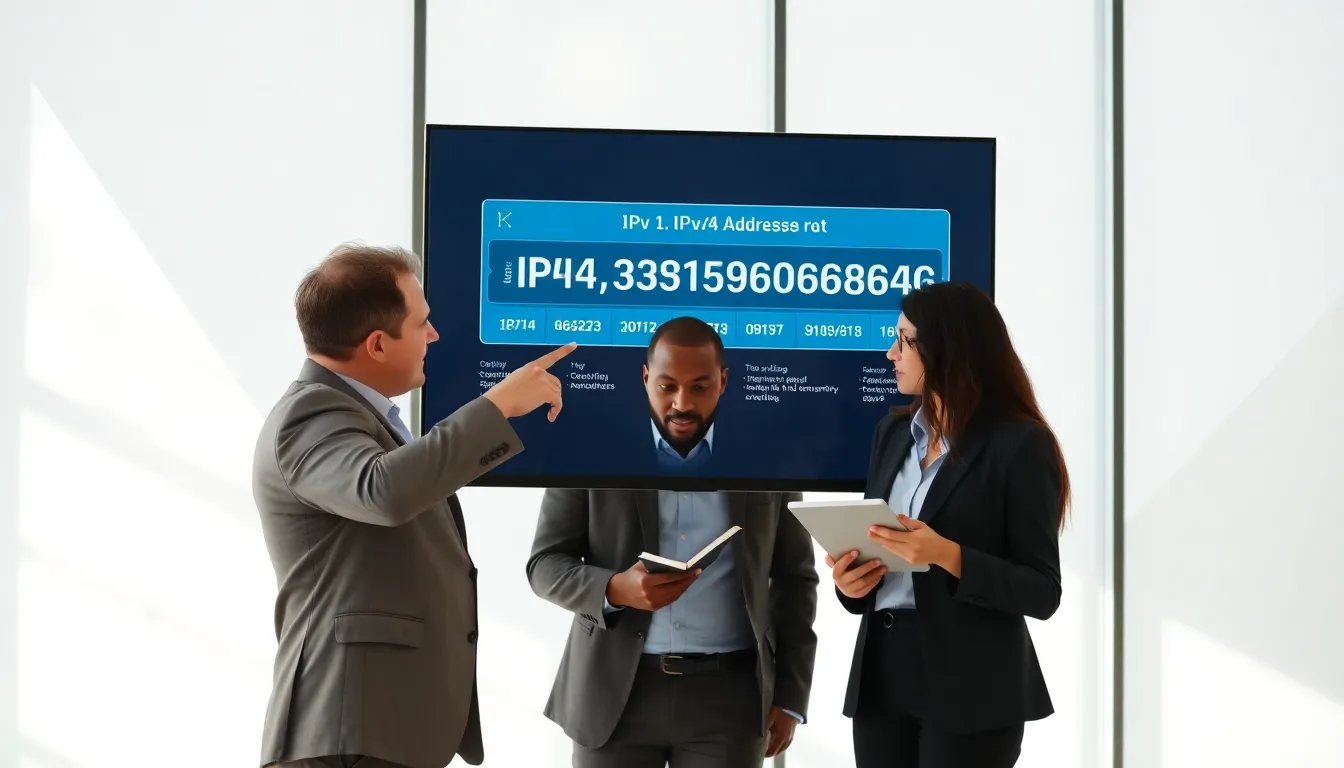Have you ever wondered what the seemingly random sequence of numbers like 111.90.150.2404 actually means? If so, strap in because the world of IP addresses is just as fascinating as it is crucial for our digital lives. Whether you’re trying to protect your network or just satisfy your curiosity, understanding IP addresses is vital in today’s tech-driven society. Who knew numbers could be so interesting? Join us on this journey as we uncover the secrets behind this specific IP address.
111.90.150.2404

What Is an IP Address?
An IP address serves as a unique identifier for devices on a network, functioning much like a home address does in the physical world. Each device connected to the internet has one, enabling communication between devices across vast distances. Without IP addresses, the digital universe would resemble a chaotic house party, where no one knows where anyone lives, not the best way to get a message across.
Types of IP Addresses: IPv4 vs. IPv6
When discussing IP addresses, two major types appear: IPv4 and IPv6. IPv4 is the older version, consisting of four sets of numbers separated by periods, like 111.90.150.2404. But, it only offers about 4.3 billion unique addresses, which might sound like a lot until you realize there are over seven billion people on this planet. Enter IPv6, the upgraded version designed to accommodate the growing number of devices needing addresses, providing a staggering 340 undecillion options. Not a mathematician? Just know IPv6 has got your back in the digital space.
The Structure of an IPv4 Address
An IPv4 address breaks down into four octets, each ranging from 0 to 255. The octets delineate the network and host portions of an IP address. The first numbers indicate the network, while the last numbers pinpoint a specific device in that network. Think of it as a postal code that tells you which neighborhood to search for the right house. Knowing this can help anyone understand how data flows over the internet.
Exploring the Meaning Behind 111.90.150.2404
Geolocation and Ownership
The IP address 111.90.150.2404 can reveal its geographical location and ownership details through various tools and databases. Each IP is associated with an Internet Service Provider (ISP) that operates within a specific region. By checking this address, one might uncover its approximate physical location, which could be as specific as a city. Is it lurking somewhere in your neighbor’s house or across the globe? It’s like a virtual treasure map that can lead you to digital nuggets of knowledge.
Common Uses of the IP Address in Networks
Typically, IP addresses can serve numerous functions, from facilitating communication between devices to aiding in data routing. In corporate networks, they help to identify devices, manage traffic, and control security. Home users often rely on IP addresses for online activities like browsing, streaming, and gaming. So, whether someone is streaming their favorite show or you’re busy playing video games, the humble IP address is working behind the scenes, ensuring everything runs smoothly.
Potential Risks and Security Concerns
How IP Addresses Can Be Exploited
While IP addresses play a vital role in networking, they also introduce potential risks. Cybercriminals can exploit IP addresses through various attacks, including DDoS (Distributed Denial of Service) attacks, by overwhelming the targeted server with traffic from numerous sources, causing a service outage. Also, hackers can use IP addresses to track users, potentially leading to identity theft or unauthorized access to systems. This alarming reality underscores the importance of understanding the risks posed by apparent numbers.
Protecting Your Network from IP-Based Threats
To safeguard against these threats, implementing basic security measures is essential. Utilizing firewalls can help filter unwanted traffic, and employing VPNs (Virtual Private Networks) provides an extra layer of anonymity and security. Knowing your IP address and monitoring network activity can also assist in identifying unusual behavior. Keeping software updated ensures vulnerabilities are patched, further increasing protection. In this tech landscape, staying informed is your best defense.
Tools for Monitoring and Managing IP Addresses
Free and Paid IP Management Tools
A variety of tools exists to help individuals and businesses manage their IP addresses effectively. Both free and paid options can assist in tracking usage, identifying devices, and monitoring networks. Tools like Angry IP Scanner or Advanced IP Scanner enable users to identify all devices connected to their network, while more advanced software can even provide analysis and reporting features. With these tools at your disposal, IP address management can become as straightforward as managing your garden, just know what’s connected, and keep an eye on growth.
Utilizing IP Address Geolocation Services
Many geolocation services can help users pinpoint the location of an IP address. Websites such as IPinfo and WhatIsMyIPAddress can provide easily digestible information about an IP’s origin, owner, and even historical data. This information might come in handy for businesses that wish to analyze their audience, or for just satisfying curiosity. In the age of data, knowing where data is coming from has never been more significant.



